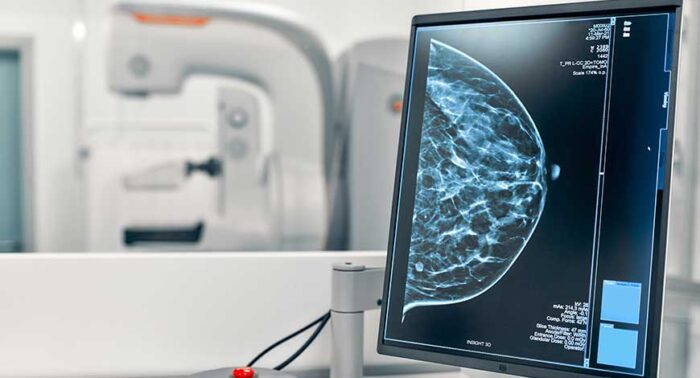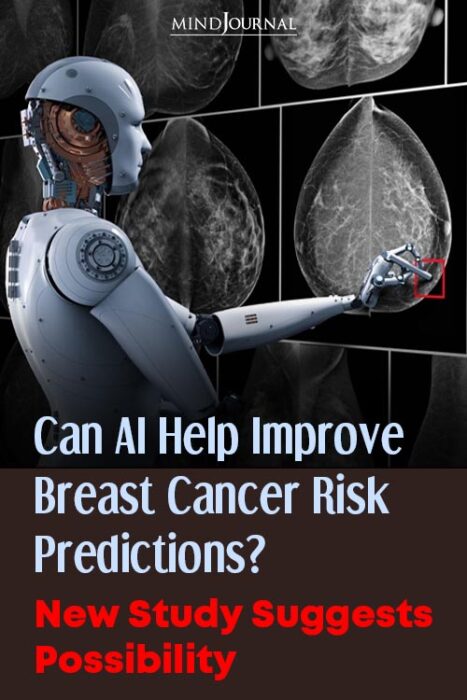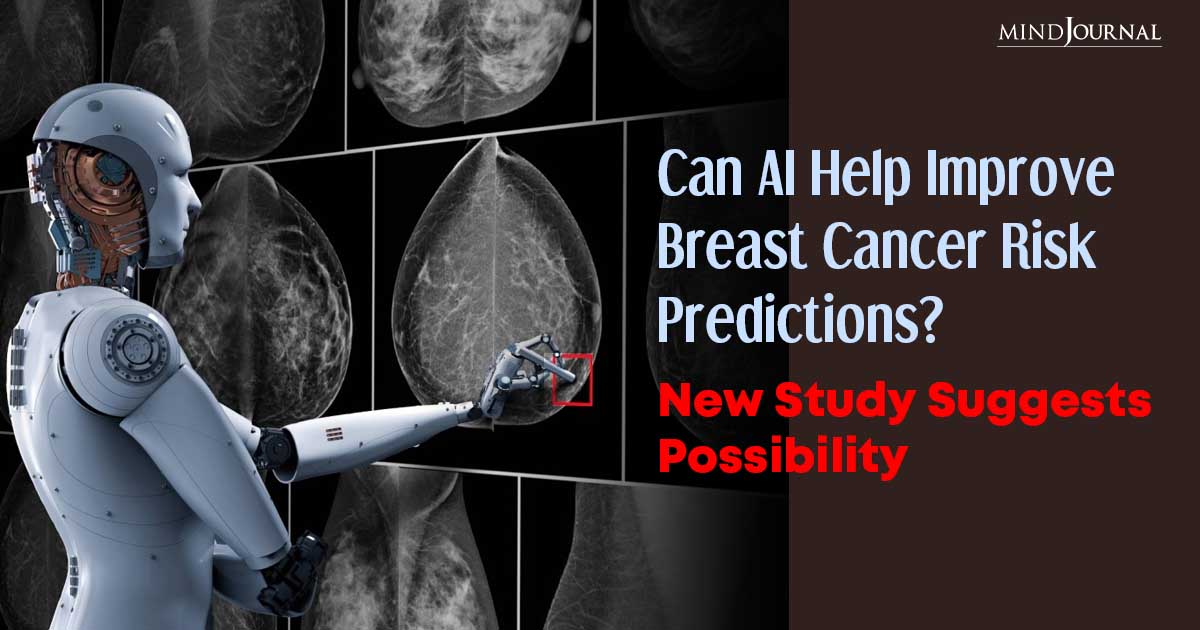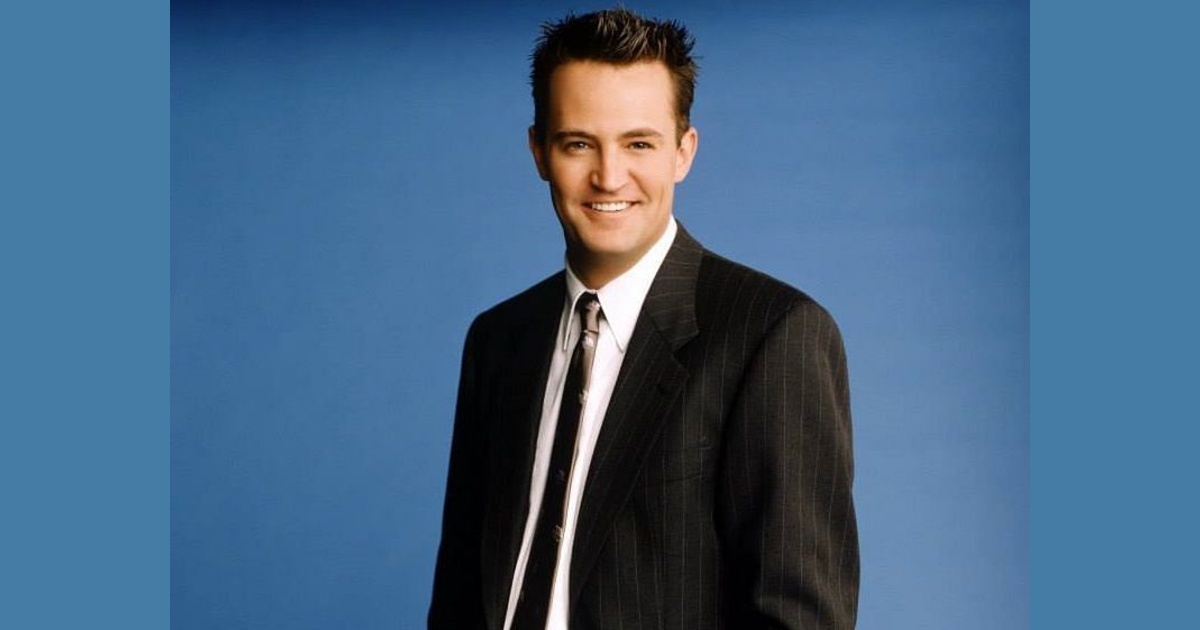AI better at predicting cancer risk, new groundbreaking study, recently published in the esteemed peer-reviewed journal Radiology, unveils yet another remarkable application of artificial intelligence (AI) in the field of medicine and healthcare.
This study demonstrates the potential for AI algorithms to significantly enhance the accuracy of predicting breast cancer risk, surpassing the performance of standard clinical risk models.
Traditionally, clinical risk models such as the Breast Cancer Surveillance Consortium (BCSC) rely on patient-reported information, including age, family history, and other factors, to calculate an individual’s risk of developing breast cancer.
However, these models can be limited by the availability and collection of diverse data sources.

Lead researcher Dr. Vignesh A. Arasu, a research scientist and practicing radiologist at Kaiser Permanente Northern California, emphasizes the transformative power of AI deep learning techniques in overcoming these limitations.
By leveraging advanced AI algorithms, the study’s retrospective analysis examined thousands of mammograms to generate risk scores for breast cancer over a five-year period.
Remarkably, all five AI algorithms outperformed the BCSC clinical risk model in predicting breast cancer risk within the 0 to 5-year timeframe.
Dr. Arasu highlights the significance of this achievement, indicating that AI not only identifies previously missed cancers but also uncovers critical breast tissue features that aid in predicting future cancer development.
While certain institutions already employ AI to aid in the detection of cancer on mammograms, this study suggests that AI can serve as an invaluable tool in generating a patient’s future risk score.
Notably, AI algorithms can accomplish this task within seconds, as opposed to the more time-consuming process of traditional risk model calculations.
These findings mark a substantial leap forward in leveraging AI’s potential to improve existing medical practices. By harnessing the vast amount of additional mammographic features extracted by AI deep learning, clinicians can enhance their ability to predict breast cancer risk accurately.
This advancement holds promise for more personalized and proactive approaches to breast cancer prevention and early intervention, ultimately benefiting patients worldwide.
According to Arasu AI can help improve breast cancer risk predictions as it offers us the opportunity to individualize every woman’s care, which isn’t systematically available.
Is AI Better At Predicting Cancer Risk? Details Below
In this study, an AI program analyzed mammograms and categorized the results into three groups:
- interval cancer risk (cancers diagnosed between zero and one year)
- future cancer risk (cancers diagnosed between one and five years)
- cancer risk (cancers diagnosed between zero and five years)
The researchers employed five AI algorithms, including two developed by the researchers themselves and three commercially available ones. The risk scores generated by these algorithms were compared to each other and the Breast Cancer Surveillance Consortium (BCSC).
Dr. Richard Reitherman, a radiologist and medical director of breast imaging at MemorialCare Breast Center, explained the factors utilized in calculating the risk of breast cancer.
The commonly used BCSC risk model for predicting breast cancer relies on five key elements to calculate a woman’s breast cancer risk:
- Age
- family history
- race/ethnicity
- mammographic breast density
- History of benign breast biopsies
Various computer risk calculators are available to estimate risk based on these factors. The study’s focus on predicting a woman’s breast cancer risk over the next five years aligns with this standard metric, offering valuable insights into AI’s potential to enhance risk assessment.

The future of AI in healthcare holds great potential, and it is already making strides in women’s healthcare. For instance, AI has been utilized in mammography through computer-aided detection (CAD) since FDA approval in 1998.
While advancements have been made, CAD systems are not relied upon solely. Most mammograms incorporate some form of CAD, which identifies areas of concern for radiologists to review.
Related: American Man Developed Irish Accent Due To Cancer In His 50s
However, there is currently a significant disparity between CAD markings and the radiologist’s final interpretation. The integration of AI in healthcare is a promising avenue for improving diagnostic accuracy and patient care.
According to a 2019 report, experts agree that AI’s role in healthcare will inevitably expand, benefiting various areas like administration, patient engagement, surgical robots, and diagnostics.
Radiology, in particular, appears well-suited for AI implementation, as it can leverage vast image databases to detect cancer or identify conditions that may lead to it.
However, before AI can be seamlessly integrated into diagnostic procedures like predicting future cancer risk, several obstacles need to be addressed.
Related: 10 Superfoods That Prevent The Growth Of Cancer
Share your thoughts in the comments below if you think AI is the future!









Leave a Reply
You must be logged in to post a comment.